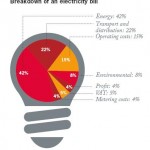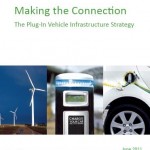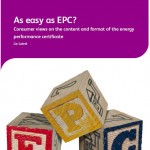Site search:
-
What’s new?
Energy for London Tags
Brent Buildings Camden Carbon Emissions CHP Cities Climate Adaptation Community Heating Community Initiatives Croydon Data DECC Decentralised Energy Distribution ECO Energy Costs Energy Efficiency Enfield FIT Fuel Poverty Funding Green Deal Hackney Haringey Housing Islington Lambeth Library Local Authorities Mayor Newham Ofgem Olympics Photovoltaics Planning RE:FIT RE:NEW Renewable Energy Retrofit Southwark Tower Hamlets Transport Waltham Forest Waste WestminsterEnergy Archives:
- February 2021 (1)
- January 2021 (15)
- December 2020 (15)
- November 2020 (9)
- October 2020 (3)
- August 2020 (5)
- July 2020 (3)
- June 2020 (4)
- April 2020 (10)
- March 2020 (5)
- February 2020 (2)
- January 2020 (3)
- October 2019 (1)
- September 2019 (4)
- August 2019 (2)
- July 2019 (1)
- August 2018 (1)
- November 2016 (8)
- October 2016 (8)
- September 2016 (2)
- August 2016 (8)
- July 2016 (14)
- April 2016 (12)
- March 2016 (16)
- February 2016 (8)
- January 2016 (4)
- December 2015 (1)
- November 2015 (1)
- October 2015 (16)
- September 2015 (3)
- June 2015 (1)
- May 2015 (1)
- April 2015 (1)
- March 2015 (1)
- February 2015 (1)
- January 2015 (1)
- December 2014 (18)
- November 2014 (4)
- August 2014 (8)
- July 2014 (7)
- June 2014 (25)
- May 2014 (8)
- April 2014 (4)
- March 2014 (12)
- February 2014 (7)
- January 2014 (13)
- December 2013 (11)
- November 2013 (15)
- October 2013 (15)
- September 2013 (18)
- August 2013 (5)
- July 2013 (20)
- June 2013 (33)
- May 2013 (8)
- April 2013 (16)
- March 2013 (25)
- February 2013 (14)
- January 2013 (20)
- December 2012 (23)
- November 2012 (23)
- October 2012 (25)
- September 2012 (14)
- July 2012 (12)
- June 2012 (43)
- May 2012 (20)
- April 2012 (8)
- March 2012 (40)
- February 2012 (39)
- January 2012 (40)
- December 2011 (22)
- November 2011 (40)
- October 2011 (33)
- September 2011 (48)
- August 2011 (40)
- July 2011 (58)
- June 2011 (41)
- May 2011 (80)
- April 2011 (38)
- March 2011 (33)
- February 2011 (25)
- January 2011 (24)
- December 2010 (3)
- November 2010 (7)
- October 2010 (6)
- September 2010 (7)
- August 2010 (1)
- July 2010 (2)
- June 2010 (4)
- May 2010 (1)
- March 2010 (3)
- February 2010 (3)
- December 2009 (5)
- November 2009 (2)
- October 2009 (3)
- July 2009 (3)
- June 2009 (1)
- April 2009 (1)
- March 2009 (1)
- February 2009 (1)
- January 2009 (1)
- December 2008 (2)
- October 2008 (1)
- September 2008 (1)
- July 2008 (1)
- March 2008 (2)
- January 2008 (2)
- October 2007 (1)
- September 2007 (3)
- July 2007 (1)
- March 2007 (1)
- February 2007 (3)
- November 2006 (3)
- August 2006 (1)
- February 2006 (1)
- May 2005 (1)
- February 2004 (1)
Author Archives: Admin
A low-carbon rush-hour
4 July 2011: Today’s Independent includes a commentary from researchers at Imperial College London who were commissioned by EDF Energy to find out the carbon footprint of commuting, city by city. The research discovered that though “Londoners have the largest number of gas-guzzlers – accounting for 48 per cent of London’s vehicles owned by individuals – and they also have the most time-consuming commute, taking an average 35.8 minutes for each rush-hour journey. Yet we calculated that Londoners actually have the lowest rush-hour travel related carbon emissions of any region.” Read on for further details.
Posted in News
Leave a comment
Sky cuts ribbon on Europe’s greenest studios
4 Jul 2011: Business Green article providing details on Sky’s new broadcasting studios in Osterley, West London, which include on site a wind turbine, natural air cooling systems and also a “a biomass-fuelled combined cooling, heat and power (CCHP) plant which will supply at least 20 per cent of the energy needed for the building’s electricity and heating systems.”
Posted in Decentralised Energy, News, Renewable Energy
Tagged CHP, Hounslow, Renewable Energy
Leave a comment
London Energy Prices
4 July 2011: DECC have just published their latest data sets on UK energy prices(PDF report and tables also available in spreadsheet format), which includes a regional breakdown of gas and electricity prices for domestic and non-domestic consumers. London’s statistics reveal that:
- London ranks second lowest in terms of paying electricity bills by direct debit, hence missing out savings offered by suppliers, as direct debit payment typically attracts suppliers cheapest tariffs (Table 2.4.2)
- The average annual London electricity bill is £435 (which is also by coincedence the average for the UK). Bills are calculated assuming an annual consumption of 3,300 kWh (see Ofgem’s Typical Domestic Energy Consumption Figures factsheet for further information). The question does arise whether such a consumption figure is suitable for London with its higher levels of flatted accommodation…If the consumption figure were lower, it is possible that electricity bills were actually higher for Londoners than reported by DECC
- The average annual London gas bill is £687 (slightly above the UK average of £681). This based on an annual consumption of 18,000 kWh.
Explaining Energy Costs
 June 2011: Industry trade association, Energy UK, two-page factsheet providing a brief explanation of the elements that go up to make up electricity and gas unit prices.
June 2011: Industry trade association, Energy UK, two-page factsheet providing a brief explanation of the elements that go up to make up electricity and gas unit prices.
Electric Vehicles – Making the Connection
 30 June 2011: The Department for Transport launched its Electric Vehicle Infrastructure Strategy today stating its vision on charging that”We want to see the majority of recharging taking place at home, at night, after the peak in electricity demand. Home recharging should be supported by workplace recharging for commuters and fleets, with a targeted amount of public infrastructure where it will be most used, allowing people to make the journeys they want” and that “... an extensive public recharging infrastructure would be underutilised and uneconomic. We want public infrastructureto be targeted at key destinations, where consumers need it, such as supermarkets, retail centres and car parks, with a focused amount of on-street infrastructure, particularly for residents without off-street parking.” One of the eight Plugged in Places projects currently going ahead around the country piloting the roll-out of recharging infrastructure, is in London – further information on which is at sourcelondon.net
30 June 2011: The Department for Transport launched its Electric Vehicle Infrastructure Strategy today stating its vision on charging that”We want to see the majority of recharging taking place at home, at night, after the peak in electricity demand. Home recharging should be supported by workplace recharging for commuters and fleets, with a targeted amount of public infrastructure where it will be most used, allowing people to make the journeys they want” and that “... an extensive public recharging infrastructure would be underutilised and uneconomic. We want public infrastructureto be targeted at key destinations, where consumers need it, such as supermarkets, retail centres and car parks, with a focused amount of on-street infrastructure, particularly for residents without off-street parking.” One of the eight Plugged in Places projects currently going ahead around the country piloting the roll-out of recharging infrastructure, is in London – further information on which is at sourcelondon.net
Energy Performance Certificates should make it clear that energy efficiency pays
 30 June 2011: Consumer Focus research found that consumers pay little attention to the EPCs when they move house. It found that EPCs give consumers no real sense of how the ratings translate into financial benefits or how to compare running costs between properties. Consumers are put off by technical language, would prefer more concise information and are confused by two separate ratings on the property for energy efficiency and environmental impact.
30 June 2011: Consumer Focus research found that consumers pay little attention to the EPCs when they move house. It found that EPCs give consumers no real sense of how the ratings translate into financial benefits or how to compare running costs between properties. Consumers are put off by technical language, would prefer more concise information and are confused by two separate ratings on the property for energy efficiency and environmental impact.
NEED – Analysis of Household Sector
30 June 2011: DECC has today published some initial analysis on the domestic sector from its National Energy Efficiency Data (NEED) Framework. The initial report covers:
- How take up of energy efficiency measures has varied between types of property and household.
- Statistical comparisons of gas and electricity consumption in 2008 by property and household types.
- Analysis of the savings made by households that have installed energy efficiency measures(for example cavity wall insulation or condensing boilers).
The analysis report finds that “There are large differences for insulation measures with only 4 per cent of properties in London receiving insulation measures compared to the national average of 13 per cent.“
The initial analysis report and two accompanying spreadsheets are all downloadable from DECC’s Energy Efficiency Statistics webpage. A summary of the findings are provided in an article in the June issue of DECC’s Energy Trends journal.
National Renewable Energy Statistics
30 June 2011: Short article in latest issue of DECC’s Energy Trends quarterly journal, published today, providing the latest national renewable energy statistics for the UK. The analysis finds that “Renewable energy provisionally accounted for 3.3 per cent of energy consumption, as measured using the 2009 Renewable Energy Directive methodology. This is an increase of 0.3 percentage points from the 2009 position of 3.0 per cent.” The UK’s 2020 target is for 15 per cent of UK energy needs to be supplied from renewable energy sources.
Preparations for the roll-out of smart meters
30 June 2011: According to a National Audit Office (NAO) report released today “There are major risks the Department of Energy and Climate Change must address to achieve value for money from its £11.3 billion national programme to install ‘smart’ electricity and gas meters in all homes and smaller non-domestic premises in Great Britain from 2014 to 2019.” Amongst the conclusions made in the report, the NAO highlight that DECC “expects smart meters to help the average dual fuel 7 customer to save £23 a year by 2020, if they change their energy use in line with the Department’s estimates. This overall benefit depends on suppliers minimising costs and passing on all their efficiency savings through their prices.” Further information on the recent smart meter trials mentioned in the NAO report are set out in Ofgem’s Energy Demand Research Project published earlier this week.
Energy Demand Research Project – Community Trials
June 2011: Final analysis of Ofgem/DECC major Energy Demand Research Project (EDRP) has just been published. EDRP was a behaviour change trial designed to help better understand how domestic consumers react to improved information about their energy consumption over the long term. The project involved over 60,000 households, including 18,000 with smart meters. Measures were generally applied at household level but one supplier (SSE) also tested action at community level (none of which were unfortunately in London – the results of these community trials are detailed in Appendix D of the report).
The results are too detailed to summarise here- but the 10 page Exec summary makes interesting reading.
Energy Efficiency PAYS Trial Update
June 2011: Gentoo has published a report which outlines early findings from the Pay As You Save (PAYS) trials. The DECC sponsored pilot currently incorporates 117 properties where energy efficiency improvements including condensing combi boilers, double glazing and solar PV panels have been installed with no upfront costs to the customer. The costs of these improvements are being recovered through a weekly PAYS charge to the customer.
Gentoo has used experience from its previous energy efficiency Retrofit Reality project to ensure that customers are not charged more than they will save.
The Economics of Climate Change
29 June 2011: An interesting speech by Chris Huhne, the Secretary of State at DECC, delivered today to the Corporate Leaders’ Group, setting out the benefits of ‘green growth’. Provides a useful overview of the current activities by governments around the world to invest in the transition to a lower carbon economy. Read the speech here.

